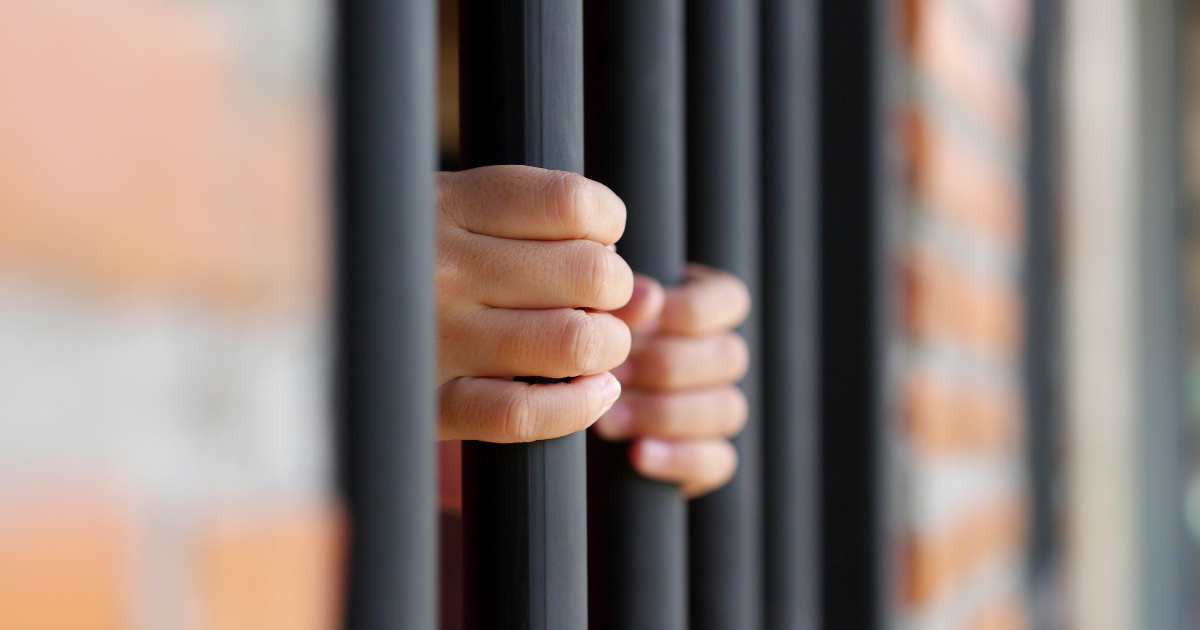
July 29, 2025 – The Wisconsin Supreme Court agreed that Luis A. Ramirez’s constitutional claim for a speedy trial violation failed, with five justices joining most of the majority opinion in
State v. Ramirez, 2025 WI 28 (June 27, 2025).
“At most, we could assign the State responsibility for 958 days of delay, caused by neutral reasons weighed against the State, but not heavily,” wrote Justice Rebecca Grassl Bradley for the 5-2 majority opinion.
“Ramirez waited 32 months before filing a pro se speedy trial demand and waited nearly another seven months before filing his second pro se speedy trial demand,” Justice R.G. Bradley explained, and “[h]is trial occurred 14 months after he filed his first demand.”
 Jay D. Jerde, Mitchell Hamline 2006, is a legal writer for the State Bar of Wisconsin, Madison. He can be reached by
email or by phone at (608) 250-6126.
Jay D. Jerde, Mitchell Hamline 2006, is a legal writer for the State Bar of Wisconsin, Madison. He can be reached by
email or by phone at (608) 250-6126.
Justices Annette Kingsland Ziegler and Brian Hagedorn joined the majority opinion in its entirety. Justices Rebecca Frank Dallet and Jill J. Karofsky joined it except for paragraph 37 and footnote 6, about which they wrote a one-paragraph concurrence.
The Supreme Court decided the case under Chief Justice Ann Walsh Bradley before Justice Karofsky became chief justice on July 1.
The speedy trial requirements raised related concerns, addressed in two longer concurrences.
“This right is particularly important in the current moment,” wrote Chief Justice Ann Walsh Bradley in her concurrence joined by Justice Janet C. Protasiewicz.
“Access to justice is hindered as legal representation becomes harder to find across such a broad swath of Wisconsin.”
While joining the majority opinion, Justice Karofsky wrote a concurrence “to emphasize that our constitution and statutes require a court to balance the rights of victims alongside those of the State and defendants in speedy trial cases.”
Delays
After 17 years of his 40-year sentence for armed robbery and battery to law enforcement officers, Ramirez stabbed a corrections officer at Columbia County Correctional Institution on May 5, 2015, “in the head and neck with a sharpened pencil.”
The State filed a complaint charging Ramirez with battery by a prisoner and disorderly conduct on Feb. 1, 2016.
Ramirez waived his right to a preliminary hearing within 20 days. After delays in obtaining a public defender and receiving a new one, Ramirez’s hearing occurred Aug. 4.
At Ramirez’s Oct. 26, 2016 arraignment, delayed for defense counsel’s request to file motions, the circuit court set the matter for trial, which on Dec. 21 it scheduled for April 13, 2017.
Due to the unavailability of a State’s necessary witness, the need for a three-day trial, the inability in the Columbia County Courthouse to handle two simultaneous trials at the time, and defense counsel’s waiting for Ramirez’s health records, the trial had yet to happen when Ramirez asserted a pro se speedy trial demand on Sept. 26, 2018.
The circuit court on Nov. 1 set a scheduling conference for Dec. 5 when it set the trial to begin April 3, 2019.
Eight days before that date, however, the State asked for an adjournment “because the prosecutor was retiring and the newly assigned prosecutor needed additional time to prepare.” Neither the victim nor defendant objected.
Before the scheduled Dec. 3, 2019 trial, Ramirez filed a pro se motion to dismiss, in part, because of a lack of speedy trial, but the circuit court denied the motion. He was found guilty at trial.
Ramirez sought postconviction relief to vacate the judgment and dismiss the case because it took 46 months to get to trial. Restricted status in prison during the wait, he alleged, “caused him stress-related health issues.” The circuit court denied the request.
The Court of Appeals divided the 46 months into eight periods and weighed the reasons for delay in each period. The State caused more than 31 months of delay. It could not explain delays for much of that time. The Court of Appeals reversed the circuit court.
Barker Factors
Courts evaluate a claim for violation of the Sixth Amendment speedy trial right with the four-factor test of
Barker v. Wingo, 407 U.S. 514 (1972), which considers (1) the length of the delay, (2) reason for delay, (3) defendant’s assertion of speedy trial right, and (4) prejudice to the defendant.
For the first factor, the majority explained, the overall length serves as gatekeeper to whether the claim is valid. Any passage of time greater than one year creates a presumptively valid claim.
Beyond that, caselaw has concluded that a delay of less than five or six years with only “simple negligence” by the State does not create prejudice as a matter of law, the majority opinion explained.
Given those standards, the Court of Appeals should not have weighed “heavily” 46 months of delay, the majority concluded.
For the second factor, the majority said, standard pretrial requirements or “the orderly administration of criminal justice,” when these required actions happen “expeditiously without delay,” don’t count as delays.
Delays attributed to the court system go against the State, the majority said, but capacity issues – “overcrowded courts, inadequate judicial resources, and mounting caseloads” – don’t weigh heavily against the State.
By that standard, none of the delays against Ramirez should weigh heavily against the State, the majority concluded.
In addition, the majority determined the “cavalier disregard” standard from
State v. Borhegyi, 222 Wis. 2d 506 (Ct. App. 1998), which the Court of Appeals used, isn’t a part of the speedy trial analysis.
“Ramirez’s delay in requesting a speedy trial” under the third factor “was significant.” His request came nearly 32 months after charging. Trial came 14 months after that request. Ramirez wins this factor, but not by much, the majority concluded.
Courts evaluate three interests in determining if the defendant was prejudiced by delay under the fourth factor: “oppressive pretrial incarceration; anxiety and concern; and the possibility the defense will be impaired,” the majority explained.
“Ramirez was unable to establish any one of these three interests,” stating only “generalized claims of anxiety and stress.”
Instead, Ramirez argued that “he suffered prejudice as a matter of law simply from the length of delay itself,” but the majority disagreed.
The only remedy for violating the speedy trial right is dismissal, which the U.S. Supreme Court described as “unsatisfactorily severe.” This high bar added to the four-factor analysis in the Wisconsin Supreme Court denying Ramirez’s claim and reversing the Court of Appeals.
Lawyer Shortage
Although Chief Justice A.W. Bradley and Justice Protasiewicz agreed that Ramirez didn’t have his rights violated when considering a 32-month delay in asserting the claim followed by only 14 months to trial, they believed the majority’s precedent “too exacting on defendants.” They didn’t join the majority opinion.
A five- to six-year delay, which the majority considered not excessive as a matter of law, may be too long. If the majority suggested this period as a bright-line rule, it goes against the U.S. Supreme Court’s requirement of a case-by-case analysis, the concurrence said.
The concurrence agreed with the exacting review the Court of Appeals made of “the longest total delay reflected in any published constitutional speedy trial case from Wisconsin.” Three states have required such scrutiny in evaluating speedy trial challenges.
If lengthy delays are OK for “neutral reasons,” they still add up, perhaps increasing their weight, the concurrence said.
These problems may be more frequent and more severe when “defendants are experiencing significant delays in apppointments of counsel” or courts lack resources, such as interpreters, the concurrence said.
These problems are acute in rural areas, and as a generation of lawyers retires, the shortage grows.
‘Consider the Victim’
The correctional officer stabbed by Ramirez lost significant amounts of blood, required treatment at a hospital, and “at least five follow-up visits,” Justice Karofsky explained.
“Just as Ramirez waited for his trial to commence, so did” the victim, Justice Karofsky wrote.
Harm to a victim fits into the “other circumstances as may be relevant” to the
Barker test. The Wisconsin Constitution gives to victims rights “no less vigorous” than the defendant’s, Justice Karofsky explained.
The victim “has a right to a timely disposition that is protected from ‘unreasonable delay’” under
Wis. Const. Article I, section 9m(2)(c), (d), Justice Karofsky wrote. The rights of victims under Wis. Stat.
section 950.04 (1v) require courts to consider how trial delays stress the victim.
“When a court is deciding whether to grant a motion for a continuance or a motion for a dismissal, it needs to consider the victim.”
‘Disagree Without Being Disagreeable’
Justice Dallet wrote a concurrence joined by Justice Karofsky explaining why they didn’t join the majority opinion’s paragraph 37 and footnote 6, which criticized Chief Justice A.W. Bradley’s concurrence.
They described those passages as “unnecessarily dismissive and adversarial in tone, and they detract from what is otherwise a well-written and well-reasoned opinion. In our opinions, as in life, we must strive to disagree without being disagreeable.”
This article was originally published on the State Bar of Wisconsin’s
Wisbar Court Review blog, which covers case decisions and other developments in the Wisconsin Supreme Court, the Wisconsin Court of Appeals, and the U.S. Court of Appeals for the Seventh Circuit. To contribute to this blog, contact
Joe Forward.
